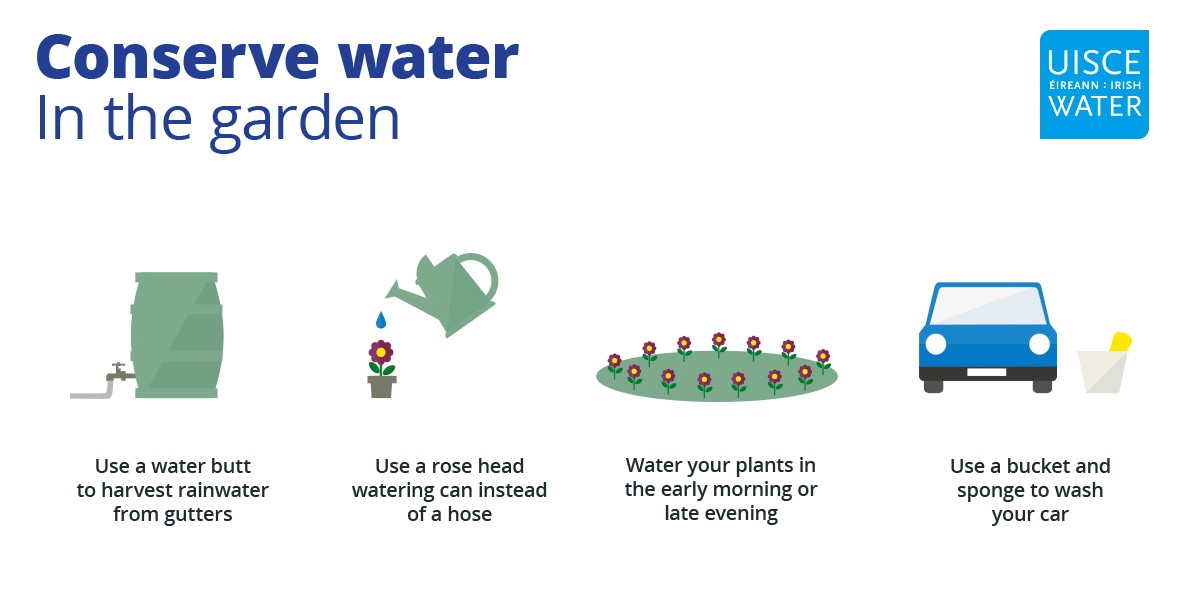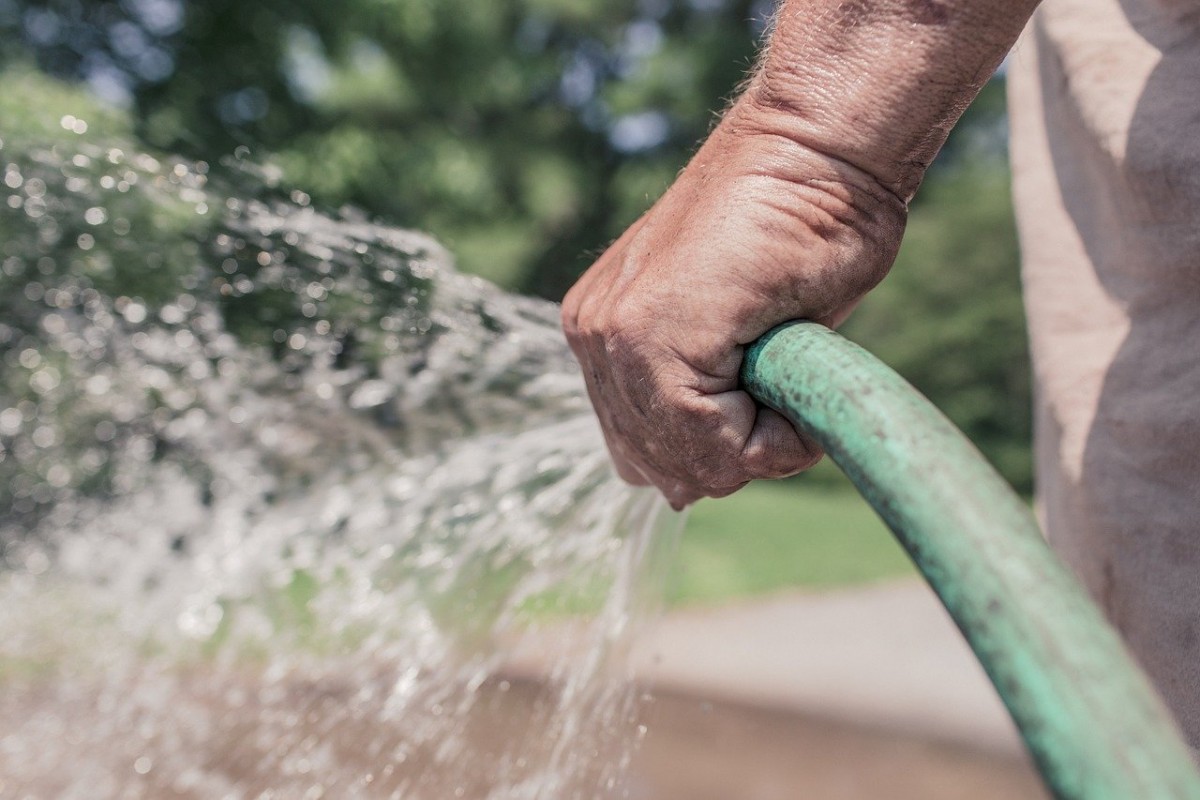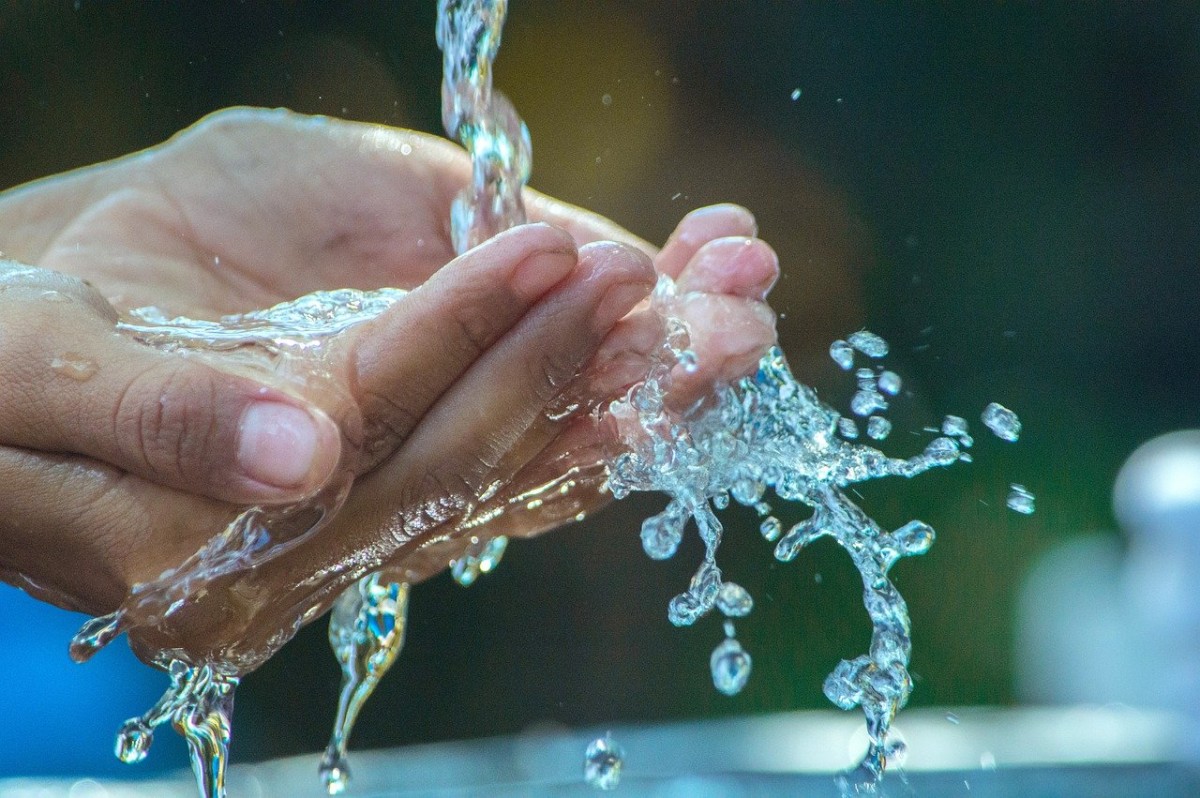
As the Irish staycation season is set to enter its busiest period over July and August, Irish Water in partnership with Clare County Council is urging the public to conserve water to ensure a consistent supply for all during this busy time.
Irish Water is predicting an increase in domestic and commercial demand for water over the coming months and customers are asked to take some simple measures to conserve water in their homes, their businesses and on their farms.
Small changes can have lasting results, for example:
Take a shorter shower and save up to 10 litres of water per minute
Fix dripping taps or leaking toilets in your home
When brushing your teeth or shaving, turn off the tap and save up to 6 litres of water per minute
Save and reuse water collected from baths, showers, and hand basins in the garden
Avoid using paddling pools
In the garden use a rose head watering can instead of a hose and aim for the roots
If you need to wash your car, use a bucket and sponge instead of a hose
Report any leaks to Irish Water at 1800 278 278
Duane O’Brien, Irish Water, said: “We would like to wish the Irish public well as they enjoy some well-deserved staycations this summer. We are continuing to work with our local authority partners to ensure everyone enjoys a reliable water supply during the busy summer period and beyond. We are also asking the public to take note of their water usage and conserve where possible.
“Conserving water is something that we should be doing year round, not just when supplies come under pressure due to drought conditions and seasonal increases in demand. As demand increases we are appealing to the public to redouble their efforts in conserving water in the home, in the garden, at work and on the farm, especially during the busy months of July and August when staycations will be at a peak and demand is expected to soar.
“This applies particularly to tourist hotspots in popular coastal regions and tourist destinations throughout the country of which we are lucky to have so many and where large influxes of visitors are expected.
“As rivers, lakes and groundwater levels reduce through the summer and autumn period, there is less water available for supply, while at the same time the warmer weather gives rise to increased water demands for domestic, agricultural and leisure uses.
“There are lots of helpful tips for conserving water on water.ie but the key things are to leave the hose and the pressure washer in the shed; don’t use paddling pools; reuse household water for the garden; and take shorter showers. Safeguarding the supply of water is essential at this time when handwashing and hygiene is of critical importance. We are calling on everyone to play their part.”

Irish Water has been carefully monitoring all of its raw water sources, that is the water from lakes, rivers, springs and ground sources that feed our water treatment plants. Night-time restrictions have been used in a small number of locations across the country to ensure a consistent day time supply for all. While the public are being asked to conserve, there are currently no plans to implement a Water Conservation Order.
Duane continued: “In Irish Water, we are continually working with our local authority partners to look at what we call the supply/demand balance. This means that we need to ensure that we can supply more treated drinking water than is required for use. We can manage this by conserving water; losing less by repairing leaks; and supplying smarter by ensuring that all of our plants are working optimally.
“We can all work together to protect our supplies and safeguard our water for essential usage.”
With the continuation of the COVID-19 pandemic, the public are reminded to adhere to public health and HSE advice, and handwashing and hygiene remain critically important.
Further water conservation information is available on the Irish Water website www.water.ie/conservation
Irish Water continues to work at this time with our Local Authority partners, contractors and others to safeguard the health and well-being of staff and the public and to ensure the continuity of drinking water and wastewater services.
